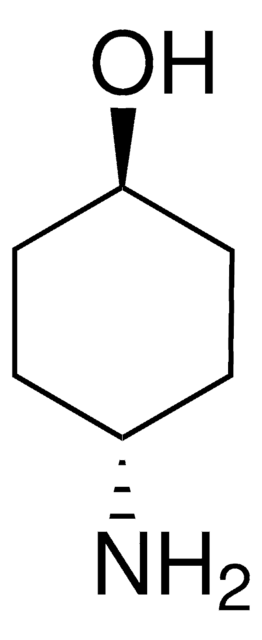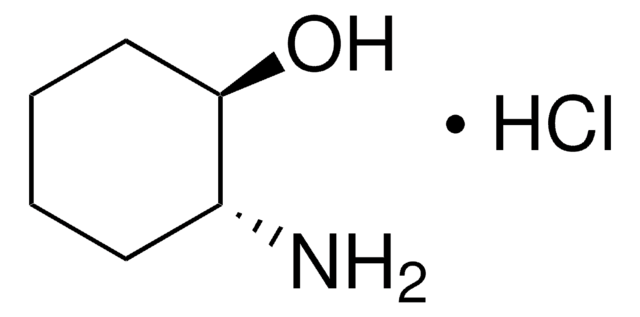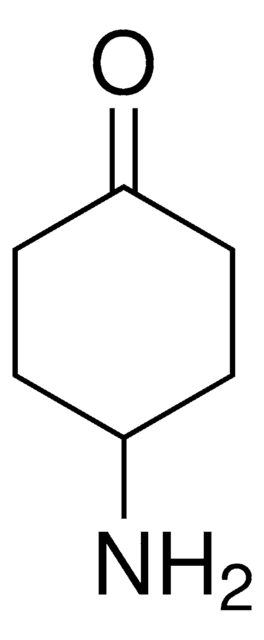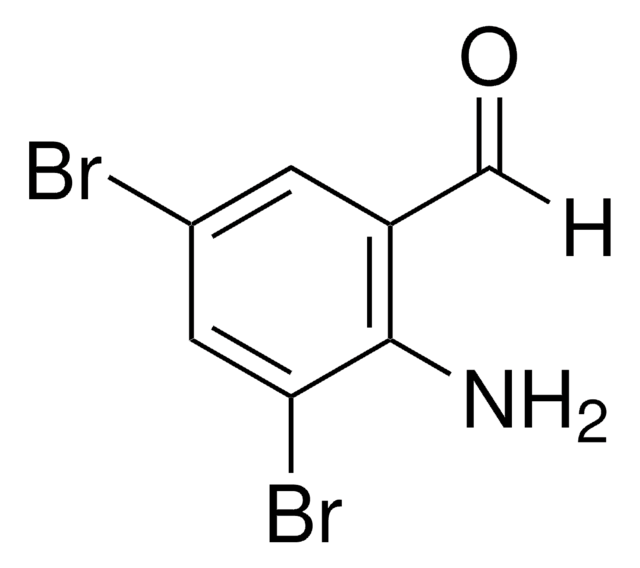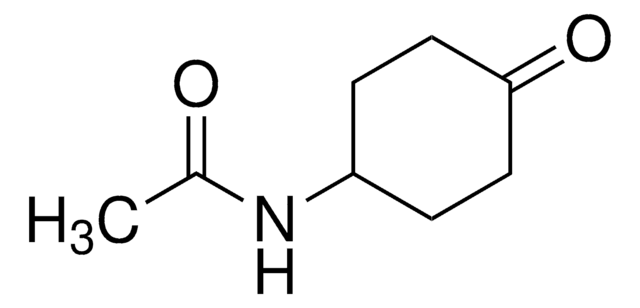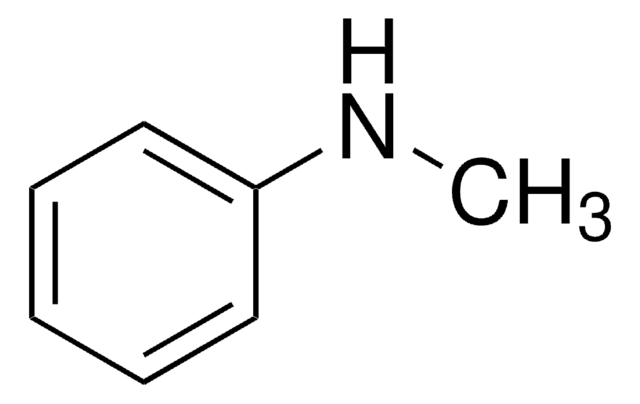263761
trans-4-Aminocyclohexanol hydrochloride
97%
Synonym(s):
trans-4-Hydroxycyclohexylamine hydrochloride
About This Item
Recommended Products
Quality Level
Assay
97%
mp
225-227 °C (lit.)
SMILES string
Cl.N[C@H]1CC[C@H](O)CC1
InChI
1S/C6H13NO.ClH/c7-5-1-3-6(8)4-2-5;/h5-6,8H,1-4,7H2;1H/t5-,6-;
InChI key
RKTQEVMZBCBOSB-KYOXOEKESA-N
Looking for similar products? Visit Product Comparison Guide
Related Categories
Application
- N-substituted 7-azabicyclo[2.2.1]heptanes via transannular nucleophilic displacement
- trans-4-methoxyoxalamido-1-cyclohexanol
- benzoxazine, required for the preparation of polybenzoxazine-silica hybrid nanocomposites
Signal Word
Warning
Hazard Statements
Precautionary Statements
Hazard Classifications
Eye Irrit. 2 - Skin Irrit. 2 - STOT SE 3
Target Organs
Respiratory system
Storage Class Code
11 - Combustible Solids
WGK
WGK 3
Flash Point(F)
Not applicable
Flash Point(C)
Not applicable
Personal Protective Equipment
Certificates of Analysis (COA)
Search for Certificates of Analysis (COA) by entering the products Lot/Batch Number. Lot and Batch Numbers can be found on a product’s label following the words ‘Lot’ or ‘Batch’.
Already Own This Product?
Find documentation for the products that you have recently purchased in the Document Library.
Our team of scientists has experience in all areas of research including Life Science, Material Science, Chemical Synthesis, Chromatography, Analytical and many others.
Contact Technical Service